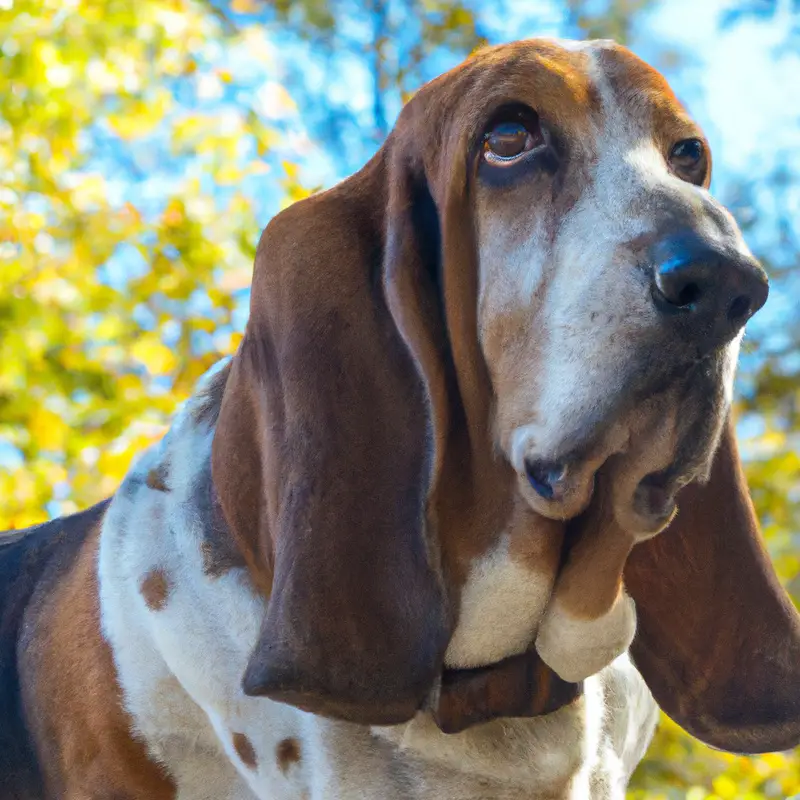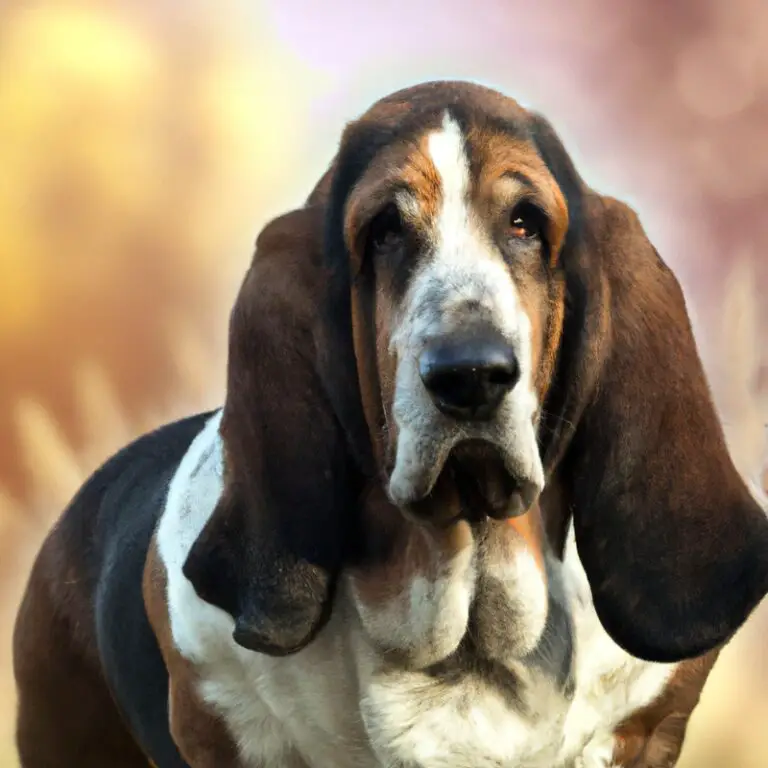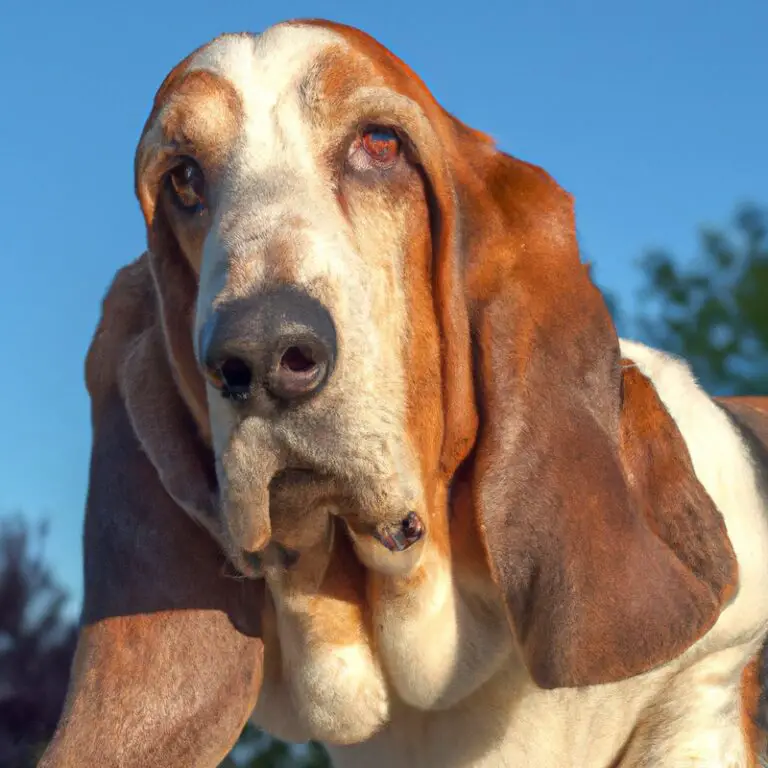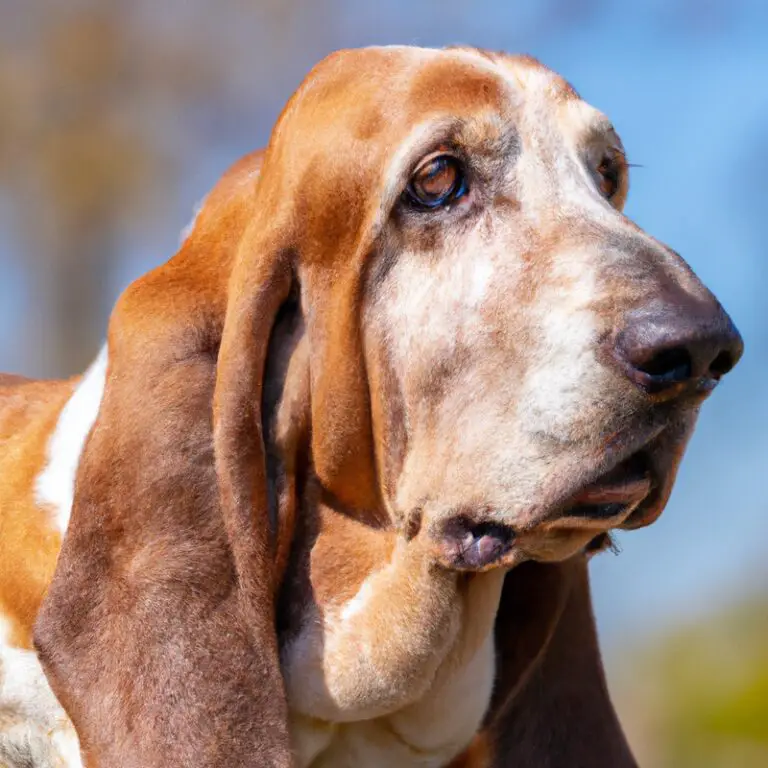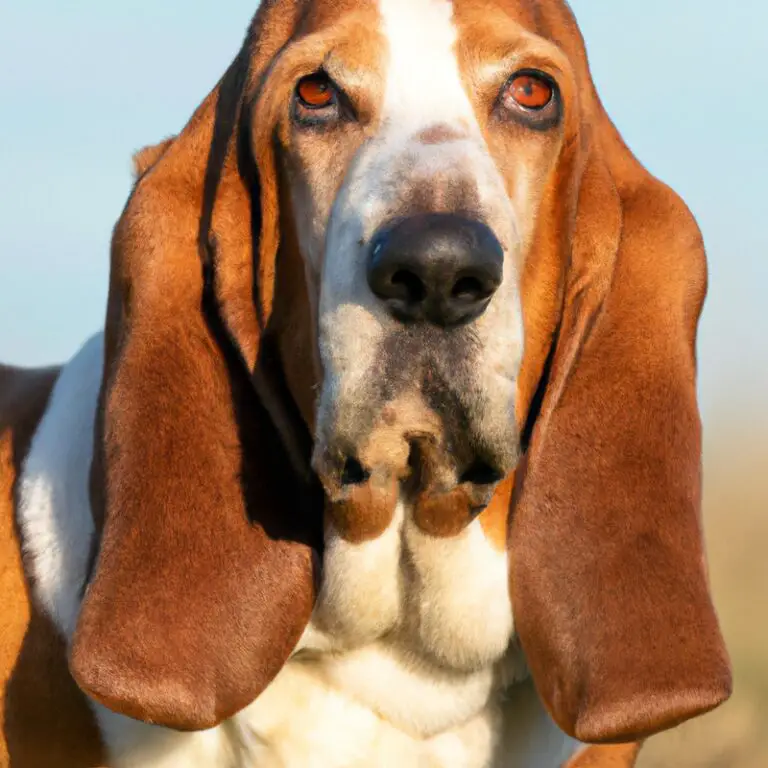Do Basset Hounds Have a Strong Need For Social Interaction?
Key Takeaways:
- Basset Hounds are generally known for their independent nature and do not have a strong need for constant social interaction.
- While they enjoy being around their owners and family members, Basset Hounds are not as social or attention-seeking as some other dog breeds.
- Basset Hounds can be prone to separation anxiety if left alone for extended periods, so moderate social interaction is beneficial for their well-being.
- Proper socialization from a young age and regular opportunities for interaction with people and other dogs can help Basset Hounds develop good social skills.
Picture this: You come home after a long day at work or school, exhausted and craving some much-needed relaxation.
As you step inside, you’re greeted by a pair of soulful eyes, a wagging tail, and a baying howl that can’t help but make you smile.
This is the warm welcome of a Basset Hound, a breed known for their affectionate and loving nature.
But have you ever wondered just how much social interaction these amazing creatures need?
In this article, I’ll dive into the world of Basset Hounds’ social nature, explore the signs of their need for social interaction, and provide tips on how to fulfill those needs.
Let’s jump in and uncover what makes these hounds tick!
| Yes | No | |
| Basset Hounds | Yes | No |
| Pros | They enjoy human company and are very affectionate | They can be independent and may not require constant social interaction |
| Cons | May develop separation anxiety if left alone for long periods | May not always seek attention and may prefer some solitary time |
Understanding Basset Hounds’ Social Nature
The Basics of Basset Hound Temperament
Basset hounds have a distinctive temperament that sets them apart from other breeds.
They are known for being laid-back, friendly, and affectionate dogs.
Bassets tend to be good-natured and get along well with people of all ages, including children.
They also tend to be sociable with other dogs.
However, they can have a stubborn streak and may need patience during training.
Bassets are generally not highly energetic, but they still require regular exercise and mental stimulation to keep them happy and healthy.
Understanding these fundamental aspects of their temperament is key to providing them with the care they need.
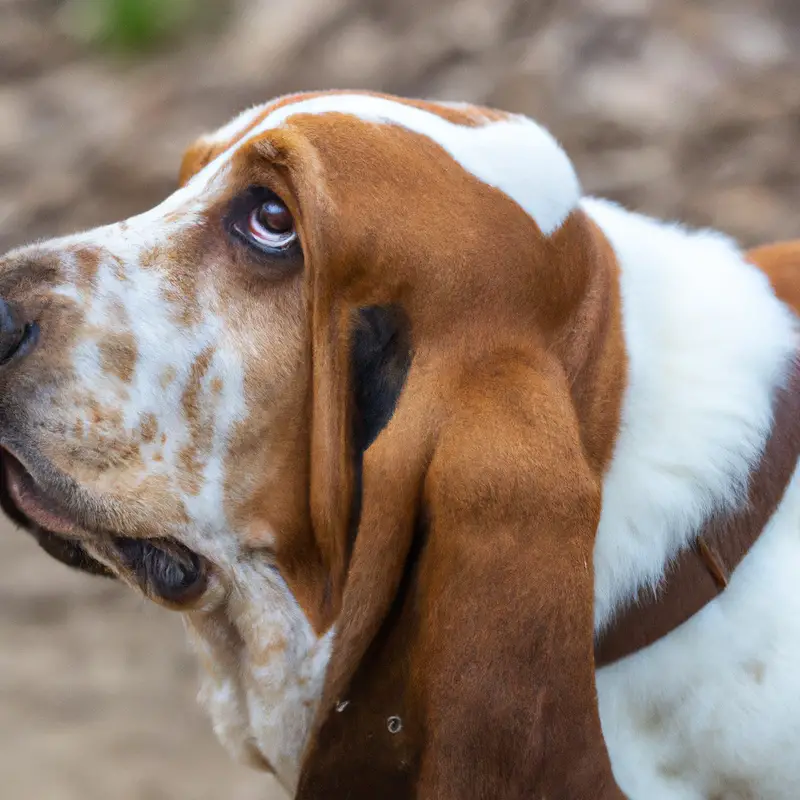
Basset Hounds and Their Pack Mentality
Basset Hounds are known for their strong pack mentality.
These dogs have a natural inclination to bond with their human family and other animals in the household.
They thrive on companionship and enjoy being part of a group.
Basset Hounds are happiest when they have social interaction and are included in family activities.
They may exhibit signs of distress or loneliness if left alone for long periods of time.
It is important to prioritize their need for social interaction to ensure their overall well-being and happiness.
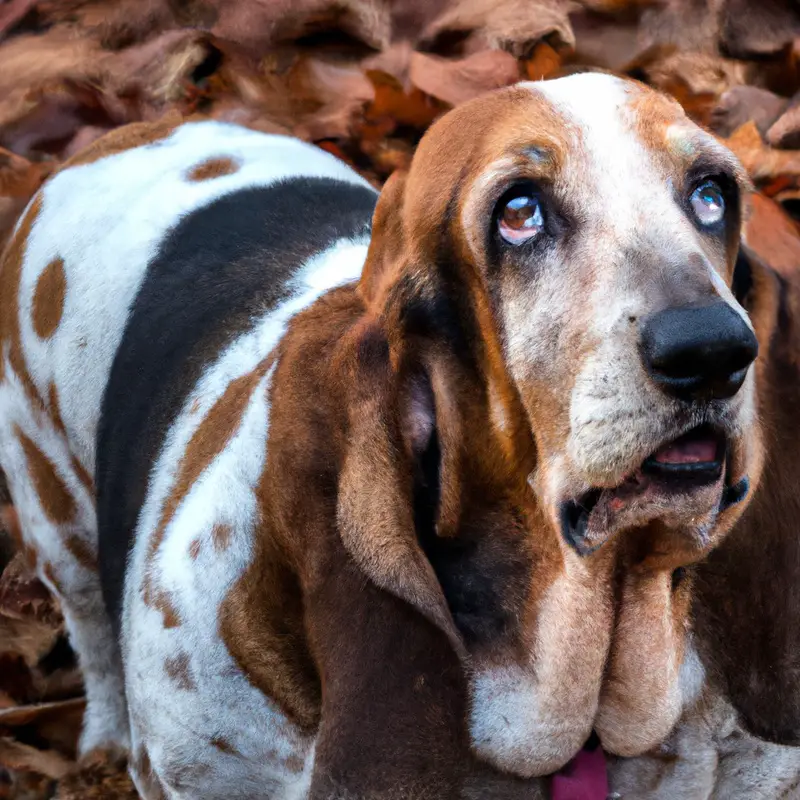
Socializing Basset Hounds as Puppies
Socializing Basset Hounds as puppies is essential for their development and well-being. It helps them become confident and well-adjusted adults.
Start socializing them early, exposing them to various people, animals, and environments.
This will help them adapt to new situations and reduce the risk of fear or aggression issues. Gradual and positive introductions are key.
Organize playdates, attend puppy classes, and provide plenty of positive experiences.
Remember, the more they socialize, the happier and more well-rounded they’ll be as adult dogs.
The Importance of Social Interaction for Basset Hounds
Basset Hounds thrive on social interaction. It’s essential for their overall well-being.
Interacting with humans and other animals helps fulfill their social needs and prevents them from feeling lonely or anxious.
Regular socialization also helps Basset Hounds develop good behavior and prevents them from becoming overly clingy or exhibiting destructive behaviors. Providing opportunities for social interactions, both with humans and other dogs, is crucial for keeping Basset Hounds happy and mentally stimulated.
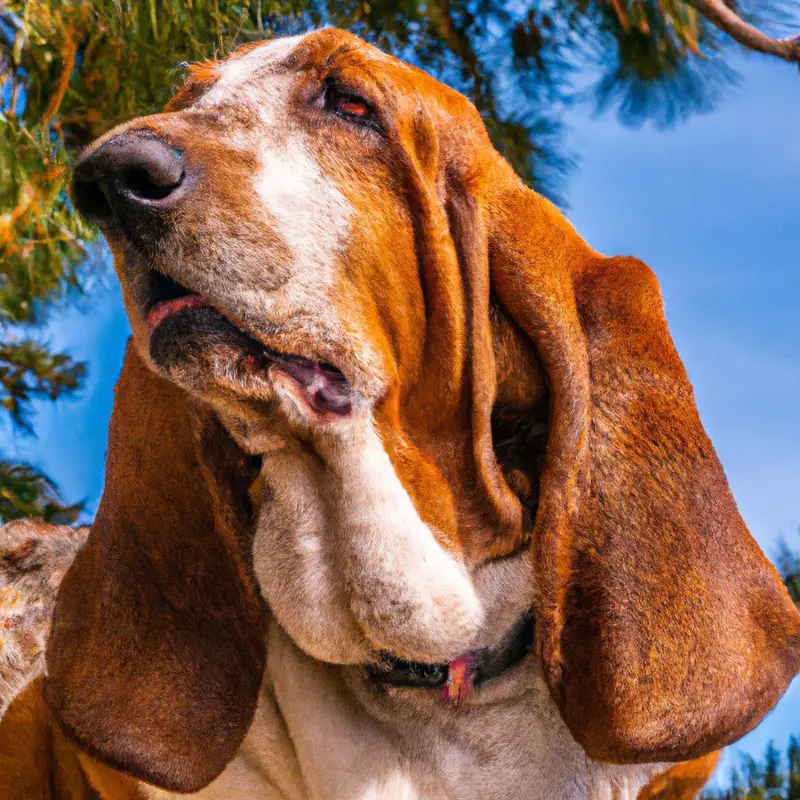
Signs of a Basset Hound’s Need for Social Interaction
Clingy Behavior and Separation Anxiety in Basset Hounds
Clingy behavior and separation anxiety are common issues in Basset Hounds.
They are known for being extremely attached to their owners and can become anxious when left alone.
Some signs of clinginess and separation anxiety include excessive barking, destructive behavior, and seeking constant attention.
To address this, it’s important to gradually acclimate your Basset Hound to being alone, provide mental stimulation, and establish a consistent routine.
If the problem persists, seeking guidance from a professional dog trainer or behaviorist can be helpful.
Excessive Barking and Destructive Behavior
Excessive barking and destructive behavior can be signs that a Basset Hound is in need of social interaction.
When they feel lonely or bored, Basset Hounds may resort to these behaviors as a way to seek attention or alleviate their anxiety.
Excessive barking can be a vocal expression of their frustration, while destructive behavior, such as chewing furniture or digging, can be a result of pent-up energy.
Providing ample social interaction and mental stimulation can help alleviate these behaviors and keep your Basset Hound happy and well-adjusted.
Withdrawal or Depression in Basset Hounds
Withdrawal or depression in Basset Hounds can occur when their social needs are not met.
These dogs thrive on companionship and can become sad or withdrawn if left alone for long periods.
Signs include decreased appetite, lethargy, and excessive sleeping.
Providing regular social interaction, such as playtime and walks, can help alleviate these symptoms.
It’s important to understand that each Basset Hound is unique, so keeping a close eye on their behavior and seeking professional help if needed is crucial.
Remember to always prioritize your Basset Hound’s emotional well-being.
Seeking Attention and Demanding Interaction
Basset Hounds are known for seeking attention and demanding interaction from their owners.
They love being around people and thrive on companionship.
They may follow you around the house, nudge you for pets, or even paw at you to get your attention.
Bassets are social dogs, and they often display their desire for interaction through their body language and vocalizations.
They might wag their tail, whine, or bark to get your focus.
It’s important to fulfill their need for attention and interaction to keep them happy and satisfied.
How to Fulfill a Basset Hound’s Need for Social Interaction
Working with a Professional Dog Trainer or Behaviorist
As a Basset Hound owner, it can be beneficial to work with a professional dog trainer or behaviorist to fulfill your Basset Hound’s social needs. These experts can provide guidance on socialization techniques, behavior modification, and training methods tailored specifically to your Basset Hound’s needs.
They can help address any behavioral issues and ensure that your Basset Hound develops appropriate social skills.
Additionally, a professional trainer or behaviorist can offer valuable advice on how to strengthen the bond between you and your Basset Hound.
Enrichment Activities and Mental Stimulation
Enrichment activities and mental stimulation are essential for fulfilling a Basset Hound’s need for social interaction. Here are some ideas to keep your furry friend engaged and entertained:
- Puzzle toys: These toys challenge your Basset Hound’s problem-solving skills and provide mental stimulation.
- Hide and seek: Hide treats or toys around the house and encourage your dog to find them. This activity taps into their natural scent-tracking abilities.
- Training sessions: Basset Hounds love to learn! Teaching them new commands and tricks not only stimulates their minds but also strengthens the bond between you and your dog.
- Interactive play: Engage in games that encourage physical exercise and mental engagement, such as tug of war or fetch.
- Scent work: Basset Hounds have an incredible sense of smell. Hide treats or toys in different areas of your home or yard and let your dog use their nose to find them.
Remember to incorporate a variety of activities to keep your Basset Hound mentally stimulated and content.
Regular Exercise and Interaction with Other Dogs
Regular exercise and interaction with other dogs are vital for fulfilling a Basset Hound’s need for social interaction. Daily walks or runs will help keep them physically active and mentally stimulated.
It’s also important to provide opportunities for them to socialize with other dogs through playdates or visits to dog parks.
This will allow them to engage in appropriate dog-to-dog interactions and maintain good social skills. Remember to supervise these interactions to ensure everyone’s safety and well-being.
Socializing Basset Hounds with Humans and Other Pets
Socializing Basset Hounds with humans and other pets is important for their social development.
Starting early is key – expose them to different people, places, and animals.
Gradual introductions, positive reinforcement, and consistent training are vital.
Encourage gentle interactions and supervise playtime, ensuring safety for all involved.
Patience is key, as Basset Hounds can be independent.
A calm and positive approach will help them become well-rounded and sociable companions.
Potential Challenges in Meeting a Basset Hound’s Social Needs
Time Commitment Required for Social Interaction
Meeting a Basset Hound’s social needs requires a significant time commitment.
These dogs thrive on social interaction and companionship, so it’s important to dedicate quality time each day to engage with them.
This includes activities like playing, training, and going on walks together.
It’s recommended to spend at least 1-2 hours daily interacting with your Basset Hound to fulfill their social needs.
Additionally, regular socialization with other dogs and humans is crucial for their overall well-being.
Keep in mind that every Basset Hound is unique, so individual differences in personality may require varying amounts of social interaction.
Balancing Work and Personal Life with a Basset Hound
Balancing work and personal life with a Basset Hound can be challenging, but with some planning and effort, it is definitely doable.
Here are a few tips to help you manage both:
- Establish a routine: Set a consistent schedule for your Basset Hound’s feeding, exercise, and playtime. This will provide them with structure and help them adjust to your work hours.
- Enlist help: If you have a busy work schedule, consider asking family members, friends, or hiring a dog walker or pet sitter to give your Basset Hound some company and exercise during the day.
- Mental stimulation: Keep your Basset Hound mentally stimulated with interactive toys and puzzles. This will help prevent boredom and destructive behavior.
- Quality time: Make the most of the time you have with your Basset Hound by engaging in activities that strengthen your bond, such as training sessions, walks, or cuddle time.
- Plan outings: Find dog-friendly places and events where you can take your Basset Hound during your free time. This will provide socialization opportunities and allow you to spend quality time together.
Remember, finding a balance between work and personal life is essential for both you and your Basset Hound’s well-being.
With consistency and love, you can meet their social needs while still managing your responsibilities.
Challenges in Finding Suitable Socialization Opportunities
Finding suitable socialization opportunities for your Basset Hound can sometimes be a challenge. One difficulty is finding other dogs for them to interact with, as some dogs may not be compatible with your Basset’s temperament.
Additionally, not all dog parks or socialization events are suitable for Basset Hounds because of their slower and lower energy levels.
It can also be challenging to find safe and controlled environments for socialization, especially for puppies who are still learning proper behavior. Nonetheless, with patience and effort, you can find suitable opportunities through local dog clubs, reputable trainers, and organized playdates with other Basset Hound owners.
Understanding Individual Differences in Basset Hound Personalities
Basset Hounds, like all dogs, have unique personalities that make them special.
Understanding these individual differences is key to meeting their social needs.
Some Bassets may be more outgoing and social, while others may be more reserved or independent.
It’s important to observe and respect their preferences for interaction.
Building a strong bond with your Basset and being attentive to their needs will help you cater to their specific personality traits.
This will ensure a fulfilling and satisfying social life for both you and your furry friend.
Final Verdict
I firmly believe that basset hounds have a strong need for social interaction. Their pack mentality and friendly nature make them thrive in social settings.
Signs of their need for interaction can manifest through clingy behavior, excessive barking, and withdrawal.
To fulfill their social needs, working with a professional trainer, providing mental stimulation, regular exercise, and socializing them with humans and other pets are essential. However, meeting their social needs may pose challenges in terms of time commitment and finding suitable opportunities.
Understanding their individual personalities is crucial in catering to their unique social requirements.
By prioritizing their socialization, we can ensure that our basset hounds lead happy and fulfilled lives.

